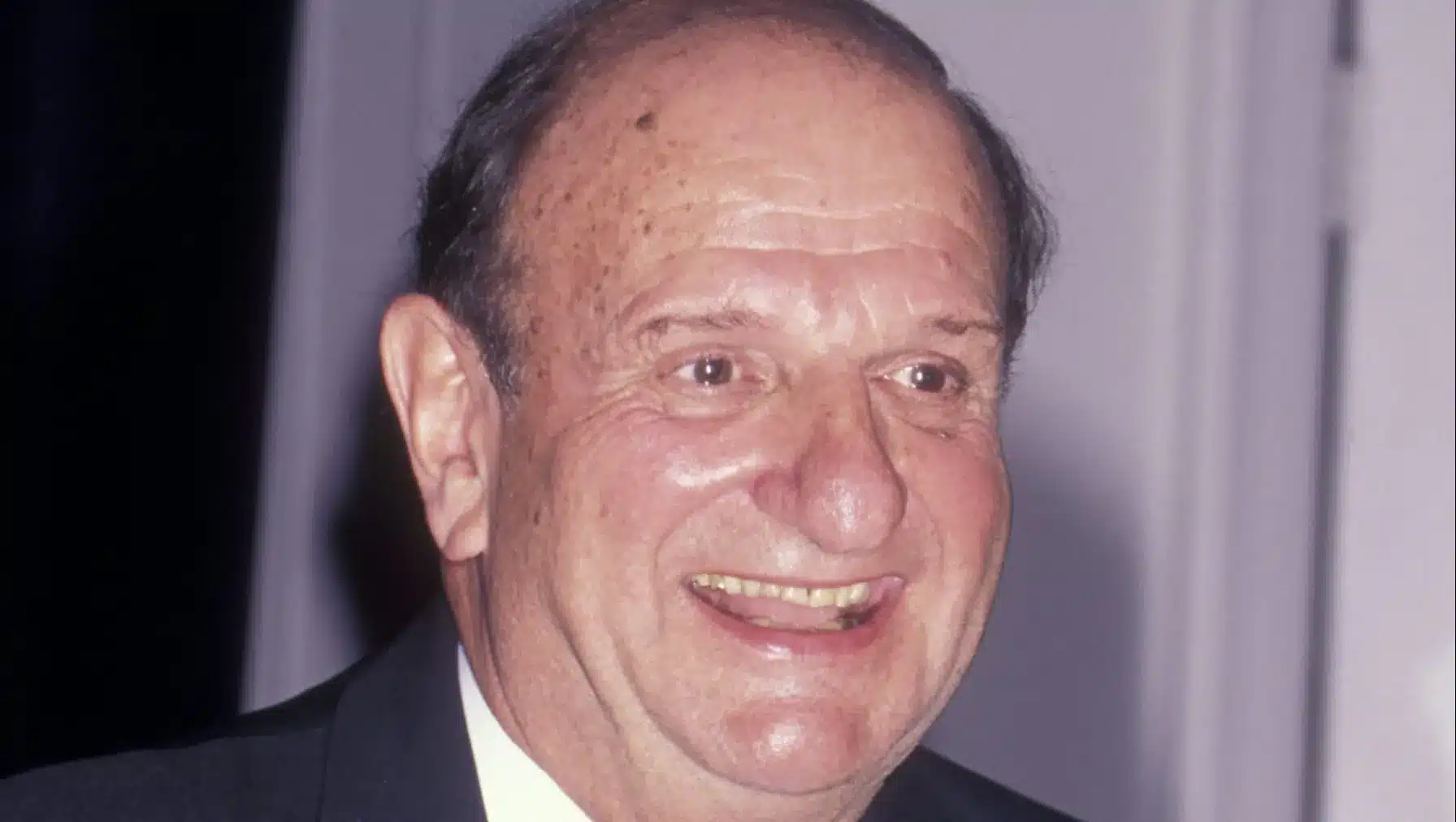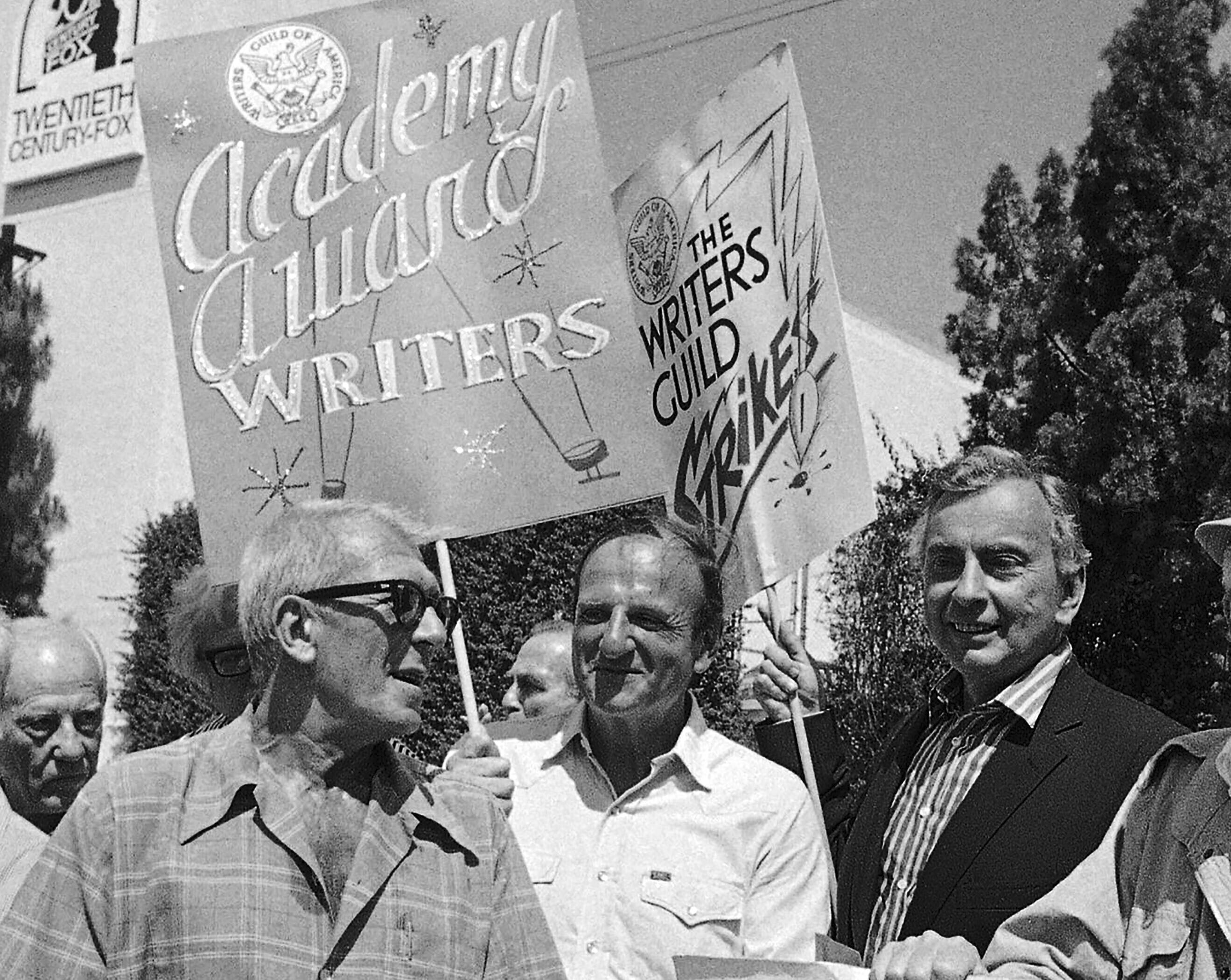Celebrity
Bo Goldman, Oscar-Winning Screenwriter Of ‘One Flew Over the Cuckoo’s Nest’, Dies At 90

NEW YORK — Bo Goldman, who wrote the Oscar-winning screenplays for “One Flew Over the Cuckoo’s Nest” and “Melvin and Howard” and whose complex, empathy-rich writings made him one of Hollywood’s best writers, has passed away. He was 90.
Todd Field, a director, his son-in-law, confirmed that Goldman passed away on Tuesday in Helendale, California. The cause of death was not disclosed in any detail.
After years of hardship as a playwright, Bo Goldman achieved success in Hollywood when he was in his 40s. For his first film credit in 1975, he adapted “One Flew Over the Cuckoo’s Nest” by Ken Kesey. The Milo Forman-directed movie, in which Jack Nicholson plays a patient in a psychiatric facility, won best picture and best-adapted Screenplay at the Oscars.
Five years later, Bo Goldman won the award once more for Jonathan Demme’s ‘Melvin and Howard’, which tells the story of Melvin Dummar, a misfortunate Utah petrol station owner who claims to be Howard Hughes’ beneficiary following the billionaire’s passing.
Along with his contemporaries Billy Wilder and Paddy Chayefsky, Goldman became well-known for his screenplays, such as the family drama “Shoot the Moon,” “The Rose,” which starred Bette Midler, and “Scent of a Woman,” which starred Al Pacino. Goldman claimed that he saw himself as a playwright who also wrote scripts. I write screenplays, he declared.
According to Bo Goldman’s 1982 interview with The Washington Post, “If there is a train of thought that runs through my work, it is a yearning to make the people real and capture their lives on the screen.” “I believe there is no greater fulfillment than having your worldview expressed via art. The film is special to me because it has a remarkable way of re-creating life. Life is so amazing that depicting it via art is like attempting to capture starlight.
The son of a successful businessman named Julian Goldman, Robert Spencer Goldman, was born in New York on September 10, 1932. At one time, his father’s apparel chain had stores throughout the country. He created Broadway productions. His legal counsel was Franklin Roosevelt. But the 1929 Wall Street crisis made him bankrupt. At his passing, he had just one store left. Young adult, Goldman discovered that his father never married his mother and had another family.

Bo Goldman, Oscar-winning screenwriter of ‘One Flew Over the Cuckoo’s Nest’, dies at 90: Getty Images
After years of hardship as a playwright, Bo Goldman achieved success in Hollywood when he was in his 40s.
“My father was a ghetto kid who went from rags to riches, then lost everything, and having committed my life to mimic him in nothing, I am convinced I will equal him in this one respect: his ending, a downward spiral into two dingy rooms in a residential hotel and bankruptcy,” Goldman wrote in a 1981 essay for The New York Times.
When Bo Goldman was a student at Princeton, he wrote plays for the Princeton Triangle Club. He removed the second “b” from Bob because it was mistakenly omitted from a college assignment. He retained Bo because he loved the name.
Goldman’s first play, “First Impressions,” was published when he was 25, following his three years of service in the Pacific during World War II. Goldman composed lyrics. Farley Granger and Polly Bergen were in it, but the reviews weren’t great. Therefore, it was deemed a failure. “Hurrah, Boys, Hurrah,” a musical about the Civil War, was then a labor of love for Goldman for years.
Goldman had sporadic television jobs around that time, but the years were incredibly tight. In his essay, he said poverty “lurks for me in the ring of every telephone call, at each mail delivery.” Goldman and Mabel Rathbun Ashforth had six kids together after marriage in 1954.
In “Melvin and Howard,” Mary comments, “He can’t make any money and it makes him feel bad.” Later, Goldman recalled. Because I was unable to provide for my family, I felt terrible.
After Goldman penned “Shoot the Moon,” a screenplay about a mother of four whose husband had an affair with a younger lady, things began to shift. Hollywood producers rejected him, but after reading it, Forman engaged Goldman to rewrite “One Flew Over the Cuckoo’s Nest.”
What would you do with this script? He asked. Years later, Goldman was called back to the Writers Guild. I first recall saying that Nicholson’s character McMurphy should enter and kiss the admissions officials.

Bo Goldman, Oscar-winning screenwriter of ‘One Flew Over the Cuckoo’s Nest’, dies at 90: Getty Images
After years of hardship as a playwright, Bo Goldman achieved success in Hollywood when he was in his 40s.
Even though he viewed it as a qualified victory, the film’s enormous success—which included Oscar wins for Forman, Nicholson, and Louise Fletcher—was the moment Goldman had long awaited. Goldman recalled in 1981, “Even then, I hung my head. Was it mine, considering that I had adapted someone else’s work?
In the end, “Shoot the Moon” was produced in 1982, under the direction of Alan Parker, with Diane Keaton and Albert Finney. But before that, in 1979, Goldman penned “The Rose,” a film starring Bette Midler and loosely based on the life of Janis Joplin.
However, one of Goldman’s greatest successes was “Melvin and Howard.” Jason Robards was nominated for an Oscar, and Mary Steenburgen won for best supporting actress in the comedy directed by Demme, which is still a fan favorite.
Along with Sidney Poitier and River Phoenix, Goldman co-wrote “Little Nikita” (1988) and contributed uncredited work to “The Flamingo Kid” (1984), “Ragtime” (1981), and “Swing Shift” (1984) by Demme and Garry Marshall. He contributed to Warren Beatty’s 1990 film “Dick Tracy” and was given a narrative credit—his final credit—on Beatty’s 2016 movie “Rules Don’t Apply.”
For a New York magazine project in 2017 about the greatest screenwriters, screenwriter Eric Roth praised Bo Goldman for his “audacious originality, his understanding of social mores, his ironic sense of humour, and his outright anger at being human, and all with his soft spoken grace and eloquent simplicity.”
:quality(70)/cloudfront-us-east-1.images.arcpublishing.com/cmg/YUFC3EXUIRGDXCAZ3LDTVL6MTI.jpg)
Bo Goldman, Oscar-winning screenwriter of ‘One Flew Over the Cuckoo’s Nest’, dies at 90: Getty Images
After years of hardship as a playwright, Bo Goldman achieved success in Hollywood when he was in his 40s.
Jesse was lost to Bo Goldman, a resident of Rockport, Maine, in 1981, and his wife passed away in 2017. He is survived by three great-grandchildren, seven grandchildren, four daughters, a son, and seven grandchildren.
With “Scent of a Woman” (1992), translated from the same-titled 1974 Italian film, Goldman received his third Oscar nomination and yet another opportunity to shine.
Goldman frequently discussed the “absolute toil” that goes into screenwriting. He claimed that conflict with studios and directors will only increase even if you are successful. You’re constantly fighting for your job, he added. And they are in complete control. And it’s shoes to them. Shoes are being sold there.
In response to the Times’ question about how it felt to get praise for “Scent of a Woman” once more in 1993, Goldman said:
“People always ask me, ‘Are you surprised?'” remarked Bo Goldman. “I always find it surprising when good things happen to me.”
source – ap





























